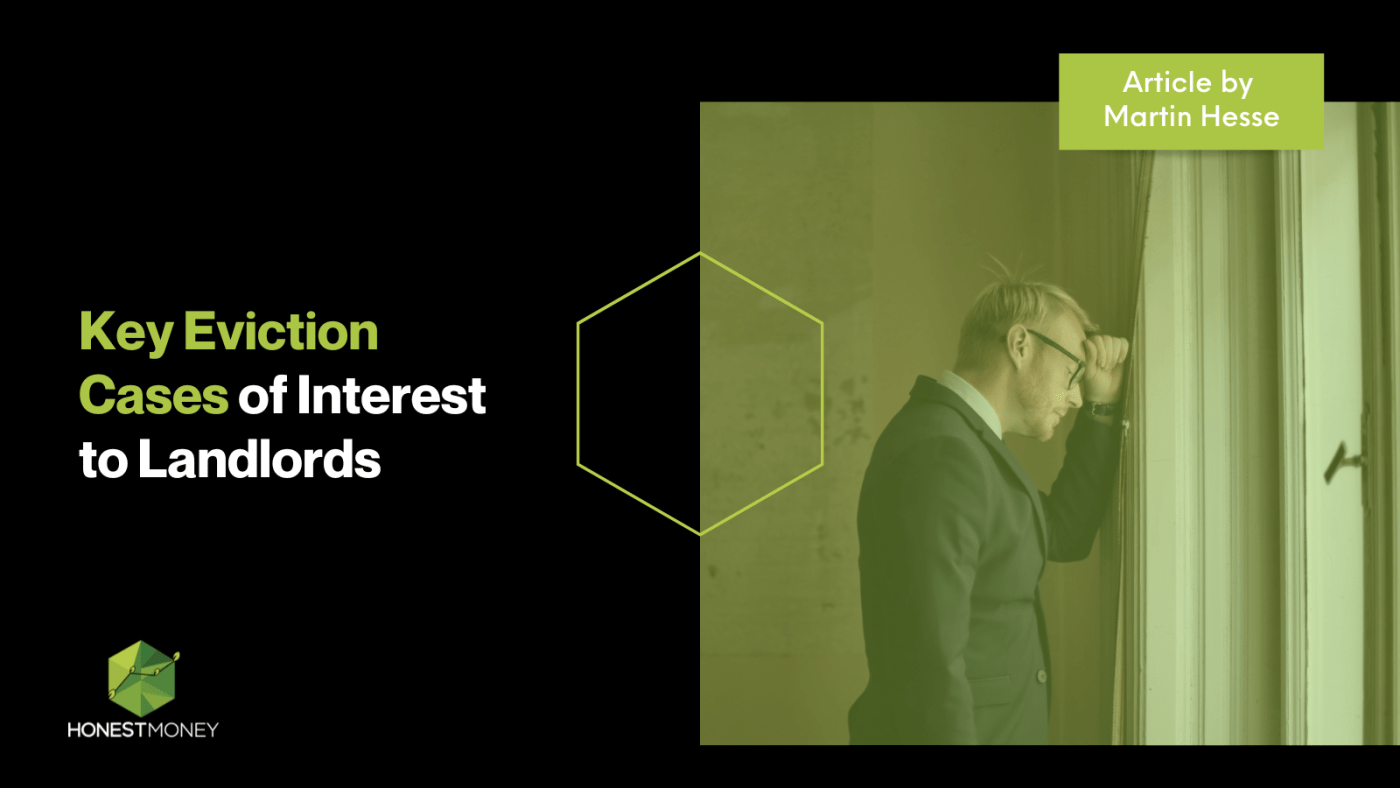Key Eviction Cases of Interest to Landlords

Two key cases in the application of legislation governing evictions from rental properties are relevant for investors and would-be investors in the buy-to-let property market.
The Prevention of Illegal Eviction from and Unlawful Occupation of Land Act of 1998 (PIE Act) defines unlawful occupiers and lays out the standard eviction procedure, as detailed in the article, What Property Owners Must Know About Evicting a Tenant.
However, the circumstances of the tenants, even if they are unlawful occupiers, also need to be taken into account. Case law has clarified situations where a decision had to be made on whether there were grounds for eviction or not.
Vulnerable occupants
The case Grobler v Phillips (2021) showed that courts will refuse eviction if it is expected to cause undue hardship for the occupants, especially if they are elderly or disabled, but should take into account offers of alternative accommodation.
Willem Grobler owned a residential property in Somerset West occupied by Clara Phillips, an 84-year-old widow, and her disabled son, Adam. When he bought the property in 2008, Philips had been residing there since 1947. Grobler asked Phillips to vacate the property, but she refused on the grounds that she enjoyed an alleged right of life-long habitation granted to her by a previous owner. Grobler made various offers to Phillips in an attempt to reach a compromise, including paying for relocation costs and offering alternative accommodation. When these offers were declined, Grobler applied to the local magistrate’s court for an eviction order.
The local court found that Philips was an unlawful occupier and had no right to continue living on the property and granted the order.
Phillips appealed to the High Court, which held that she was an unlawful occupier as defined in the PIE Act, but took the view that she was also entitled to rely on the Extension of Security of Tenure Act of 1997 (ESTA). However, it further held that, even as an unlawful occupier, and even if ESTA did not apply, it would not be just and equitable to grant an eviction order considering her advanced age, the period for which she had resided on the property, and the fact that her son was disabled.
Grobler took the case to the Supreme Court of Appeal (SCA), which, while finding that ESTA did not apply in this particular case, agreed with the High Court decision on refusing the eviction under the PIE Act.
In desperation, Grobler went all the way to the Constitutional Court. Here, he submitted that the SCA had overlooked the fact that Phillips would not have been rendered homeless, as alternative accommodation had been made available to her.
The court held that the SCA had, indeed, not placed sufficient weight on the offer of alternative accommodation. It said that, as an unlawful occupier, Phillips did not have the right to refuse to be evicted on the basis that she preferred to remain on the property. It held that it would be just and equitable to grant the eviction order, which, under these circumstances, would not render Phillips homeless. She would essentially only be required to relocate from one home to another in the same immediate community within Somerset West, with her relocation costs borne by Grobler.
Student accommodation
In the case Stay At South Point Properties (Pty) Ltd v Mqulwana and Others, in July 2023 the SCA overruled a decision by the High Court regarding students occupying a university residence.
The appellant was the owner and the manager of a residence, New Market Junction, for students enrolled at the Cape Peninsula University of Technology (CPUT). The respondents were students studying at CPUT in 2020. The students had been allocated accommodation in the residence until the end of November 2020 but refused to vacate it despite having been given notice to do so within 72 hours of their last examination of the 2020 academic year.
The owner applied for ei vindicatio order from the High Court, which allows an owner to reclaim possession of their property from someone who unlawfully possesses it. But the students argued that the PIE Act applied to the case and, as such, the application was defective.
The case came before the SCA because, although the students no longer occupied residence at the commencement of the SCA hearing, the parties agreed that it held wider, far-reaching implications regarding the eviction of students from student accommodation.
The SCA found that there were three relevant features of the accommodation afforded by CPUT to the students:
1. The students came from homes in order to study at the university. Thus, eviction did not render the students homeless.
2. The provision of student accommodation was for a finite period and had a limited and defined purpose: to accommodate students for the duration of the academic year
3. Those who benefited from the accommodation knew full well that each year new students came to the university for the very benefit that they themselves had enjoyed.
The SCA held that it followed that the PIE Act did not apply to the students’ occupation of the property and the appeal was upheld.
To summarise, the provisions of the PIE Act do not apply if the property is not used as a primary residence; the occupation is temporary or purpose-specific; and the occupant cannot show that eviction would result in homelessness.
Author
-

Martin is the former editor of Personal Finance weekend newspaper supplement and quarterly magazine. He now writes in a freelance capacity, focusing on educating consumers about managing their money
View all posts


